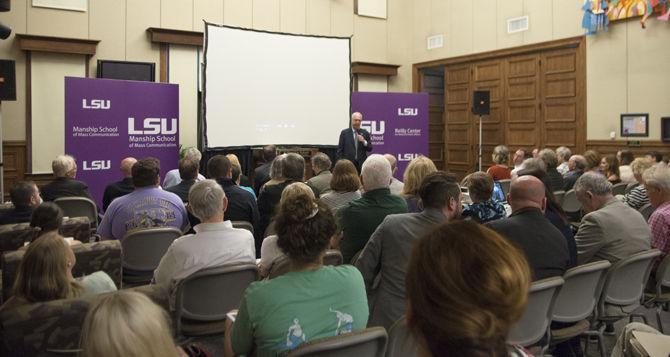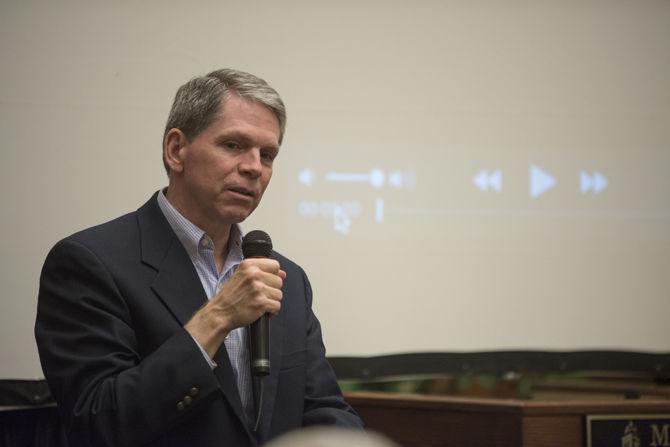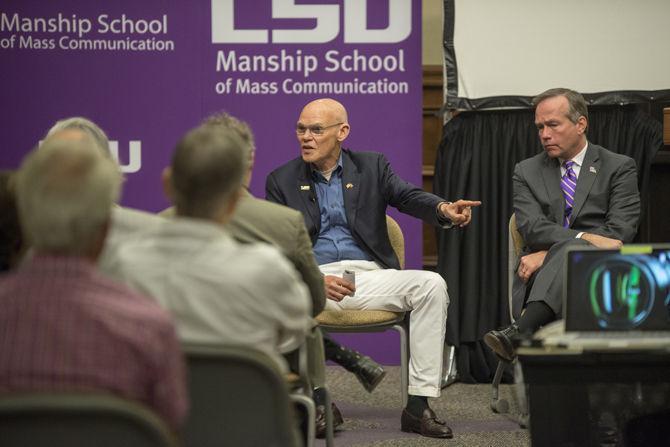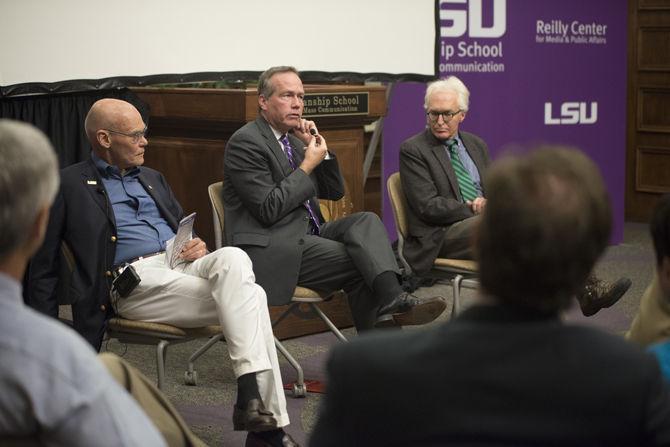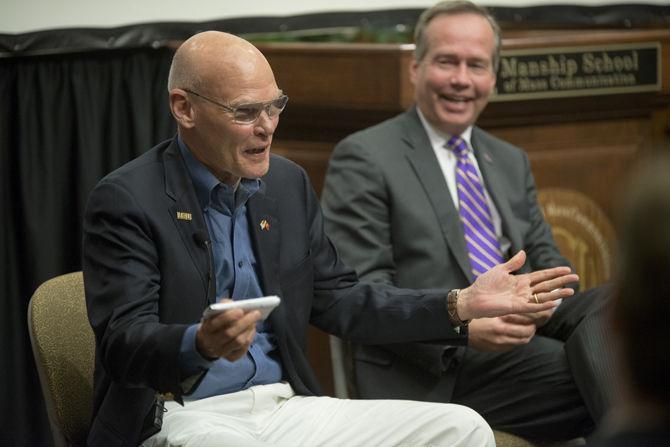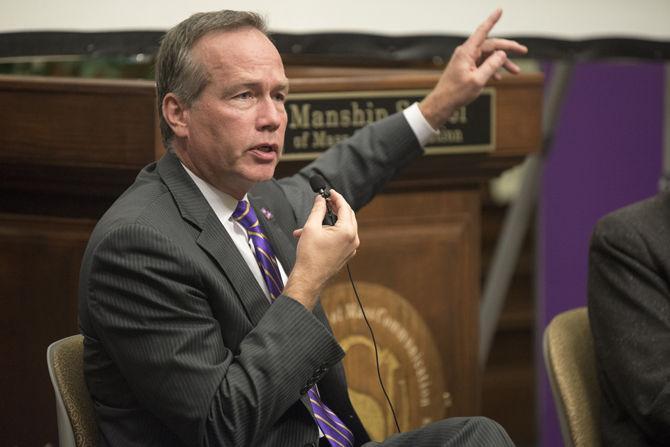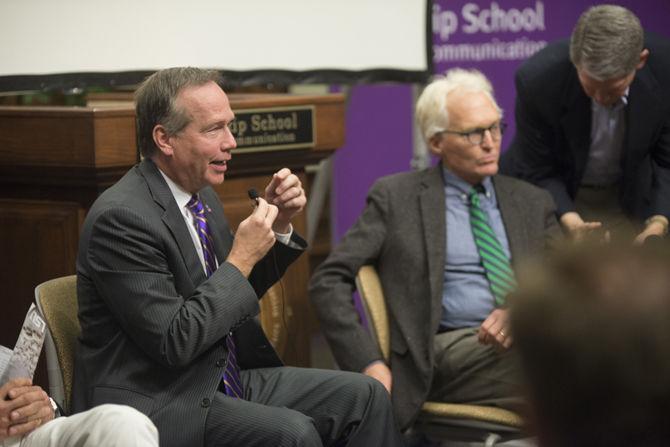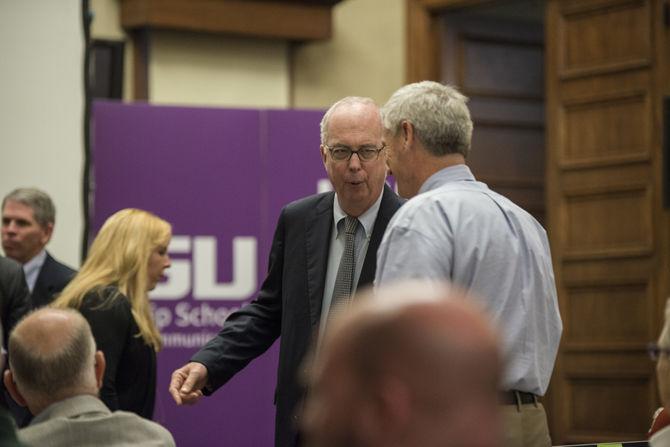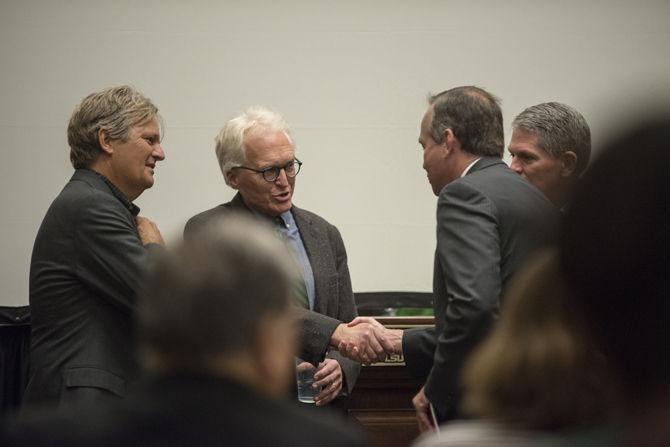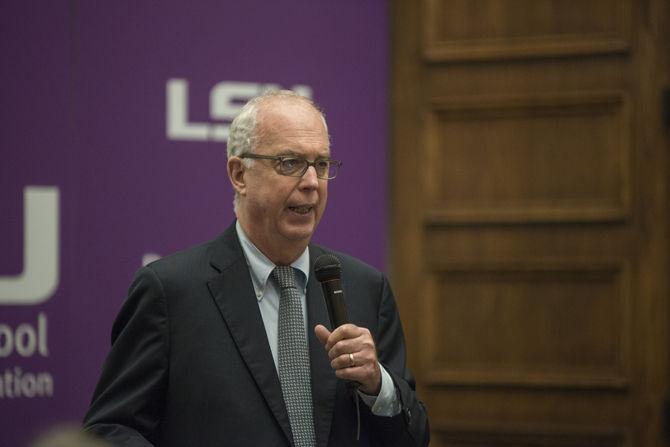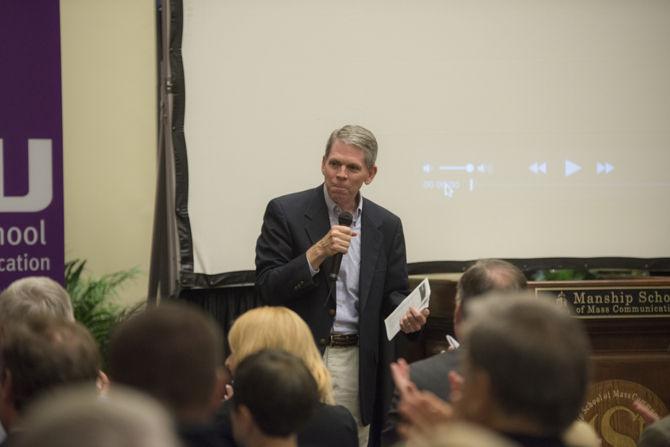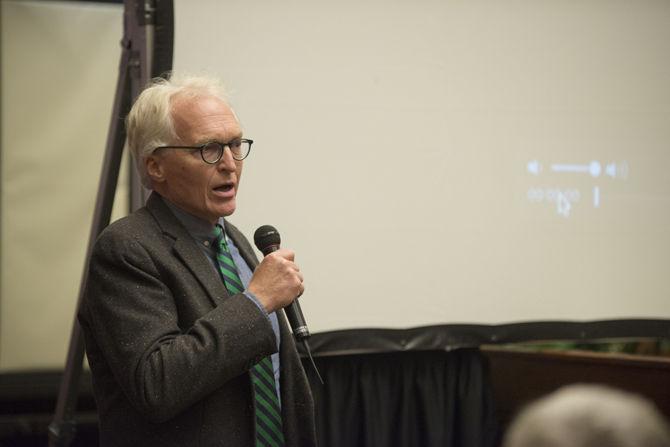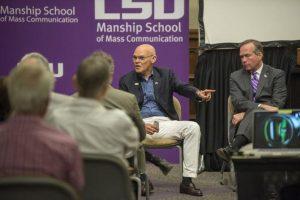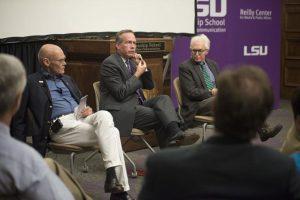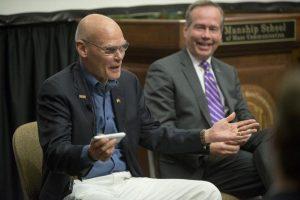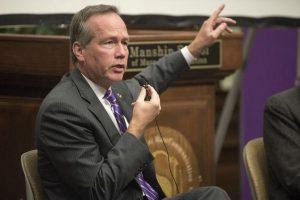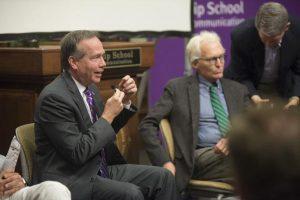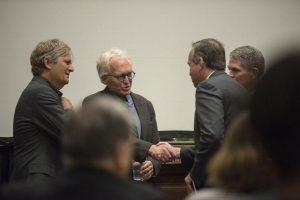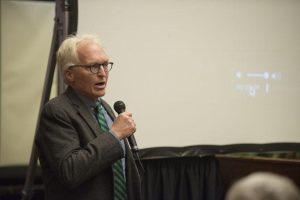The Journalism Building’s Holliday Forum welcomed political strategist James Carville, film professor-turned-director Steve Mims and LSU President F. King Alexander for a nighttime screening of Mims’ “Starving the Beast” documentary Monday night.
According to its press kit summary, “Starving the Beast” takes a closer look at the “on-going power struggle” between politically-driven market forces and public universities which plagues college campuses nationwide. The film also follows the “philosophical shift” of public universities from a societal good to a value proposition, examining cases at the University of Wisconsin, University of Virginia, University of North Carolina, University of Texas and Texas A&M, along with LSU.
After a Texas Board of Regents scandal made its way to his UT-Austin campus, Mims got to work on the three-and-a-half-year filmmaking process that would become “Starving the Beast.” When one of the Regents members was almost impeached, Mims said he delved into the story, which led him to an education reform movement sweeping the nation.
Working backwards, he said he discovered privatization of public education started making waves in Texas in 2008.
“A lot of the reform ideas they had were antithetical to the ideas of a university,” Mims said.
Alexander said national public universities average $29,000 per student, whereas private universities nearly double with a $60,000 investment per student. He said new policies offer an “escape clause” to public state legislators vying for reelection.
Manship Chair in Journalism Bob Mann, who was featured in the documentary, said the narrative focuses on two primary issues — the ripple effect caused by the defunding of higher education and the diminishing the purpose of universities. By cutting university budgets, he said state governments can cause instructional quality to decline, which in turn leads to more cuts.
“You’re creating an environment that is guaranteed to fail, and then you’re punishing them for the failure that you helped create,” Mann said.
Additionally, Mann said the guiding principles of historic institutions of higher learning — to foster a community of educated citizens and promote a higher level of thinking — have been morphed into a free marketplace model.
In a question-and-answer session following the screening, Carville told a packed room he viewed the commodification of public higher education as borderline “criminal.”
“We are taking money from young people and giving it to campaign donors,” Carville said. “What we’re seeing is, at a minimum, a massive act of immorality.”
In a new reality where STEM programs claim the most dollars, Mann said the arts and humanities ought not only to be tolerated, but celebrated. If the humanities program leaves a place like LSU, he said it is no longer a flagship university.
Mims said he hopes “Starving the Beast” provides viewers with a greater awareness and deeper understanding of the issues public higher education faces today. Comparing the dilemma to a 12-step program, Mims said the first step the public must make is admitting there is a problem.
Framing the narrative, Carville said the public needs to reclaim state-funded universities or else bear the consequences.
“You could have the Koch brothers draw up your curriculum for you,” Carville said in the documentary. “They’d be happy to do it, no problem.”
“Starving the Beast” documentary forecasts future of public universities
April 18, 2016
Dean Jerry Ceppos addresses the crowd before the showing of director Steve Mims’ Starving the Beast: The Battle to Disrupt and Reform America’s Public Universities on Monday, April 18, 2016 in Manship’s Holliday Forum.
More to Discover


